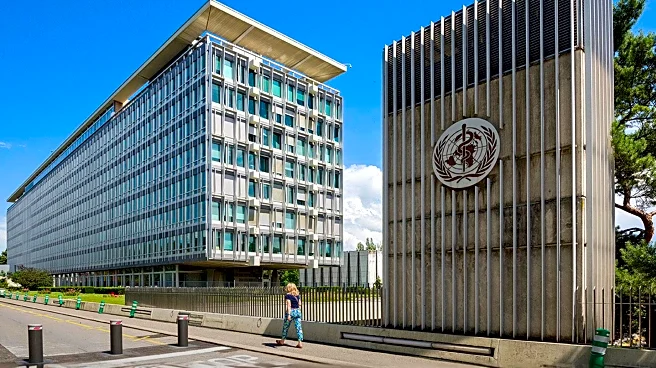What's Happening?
The World Health Organization (WHO) has updated its Model Lists of Essential Medicines to include GLP-1 therapies, such as Novo Nordisk's semaglutide and Eli Lilly's tirzepatide, which are used for diabetes and obesity treatment. This decision underscores the importance of these medications in addressing public health issues, as obesity and diabetes affect over a billion people worldwide. The inclusion aims to promote better access to these treatments in developing countries, where high costs have previously limited availability. The WHO has highlighted the transformative potential of GLP-1 therapies but also raised concerns about their pricing, which can exceed $1,000 per month, making them inaccessible to many patients in poorer regions.
Why It's Important?
The inclusion of GLP-1 therapies in the WHO's Essential Medicines list is significant as it could lead to increased access to these treatments globally, particularly in developing countries. This move may encourage generic competition, potentially lowering costs and expanding availability. The decision reflects the urgent need to address obesity and diabetes, which are linked to other serious health conditions like cardiovascular and kidney diseases. By promoting access to these therapies, the WHO aims to improve health outcomes and reduce the burden of these diseases worldwide.
What's Next?
Teva Pharmaceuticals has recently received FDA approval for the first GLP-1 generic for obesity, which could pave the way for more affordable options in the U.S. and potentially globally. The WHO's decision may prompt other pharmaceutical companies to develop generic versions, further increasing access. Additionally, the inclusion of GLP-1 therapies in the Essential Medicines list may influence healthcare policies and insurance coverage in various countries, leading to broader distribution and use of these treatments.











